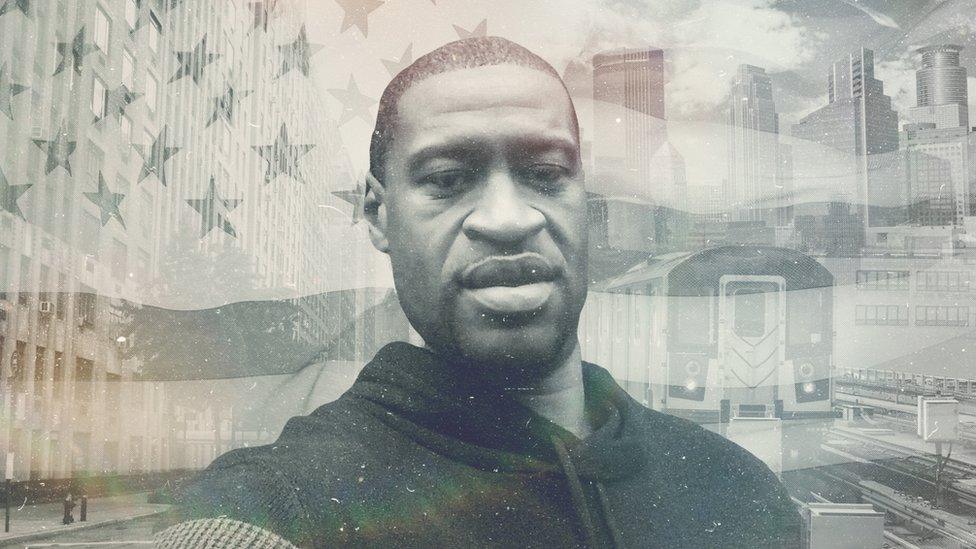Edward Colston statue to be part of museum display in Bristol
- Published
- comments
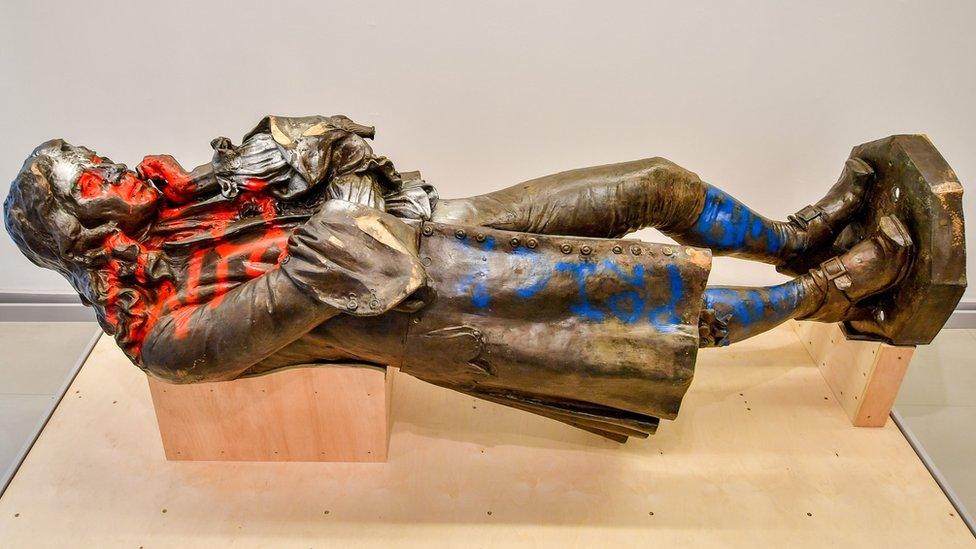
The statue of slave trader Edward Colston is going on public display in Bristol, almost exactly a year since it was pulled down by protesters
The statue of Edward Colston that was pulled down during a protest against racial inequality will be moved to a Bristol exhibition.
The statue was pulled down during a protest that was sparked by George Floyd's death in May 2020.
It will go on display as a way of 'continuing conversations' about race and inequality.
It's hoped that local people will get involved in sharing their thoughts about the statue and what should be done with it once the exhibition is over.
WATCH: Esther Deans took Newsround on a tour of her hometown Bristol to show us how slavery shaped the city's landscape
Edward Colston was a rich merchant in Bristol who made a lot of money through slavery in the 17th Century.
However, when he died he left lots of his wealth money to good causes and charities, which is why a statue was put up and some roads, a concert halls and even a school were named after him.
Some people believe that the statue glorified his actions and that the statue should be removed while others say that the statues provide history and answers to Britain's past.
After the statue was thrown into the harbour during the protests, it was recovered while people debated what to do with it.
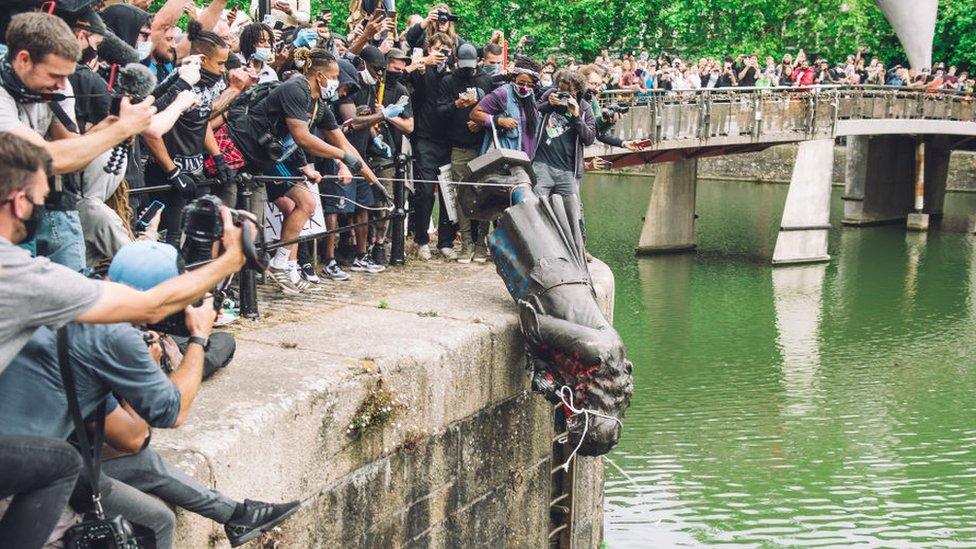
Anti-racism protesters threw the statue of slave trader Edward Colston into the harbour
Now the statue will go on display, at the M Shed museum in Bristol.
The exhibition will also have placards - which are the signs used at protests - from the protest and it aims to spark conversations about how modern Britain was built.
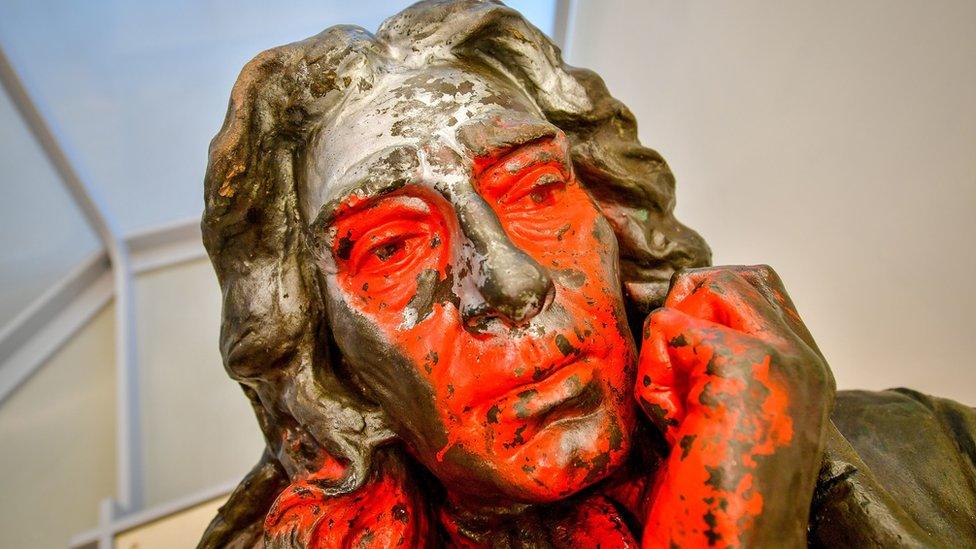
The statue had stood in the city since 1895 until it was pulled down last year
The Mayor of Bristol has said that the future of the statue must be decided by the people of Bristol and urged the local people to share their views.
Dr Shawn Sobers, a professor at the University of the West of England who is part of the exhibition said:
"We know this isn't an isolated incident, we know that there are statues across the world that celebrate slavers.
"At the same time, the anti-racist movement isn't about statues. It's trying to eradicate racism from society and bring equality where there's racial disparity which cuts across economic divides, but statues are a symbol of how seriously our cities in Britain are actually taking these issues."
Those who have put the display together have said the statue going on display is not an "exhibition about Colston or transatlantic slavery in Bristol" but an opportunity for people to come together and have continuing conversations about the "shared history" that Bristol and Colston have.
- Published26 September 2023
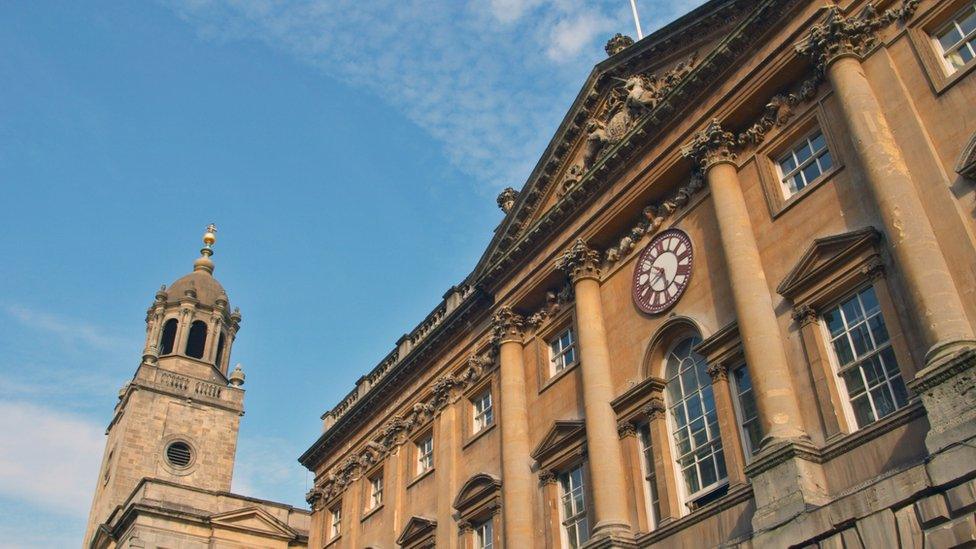
- Published15 July 2020
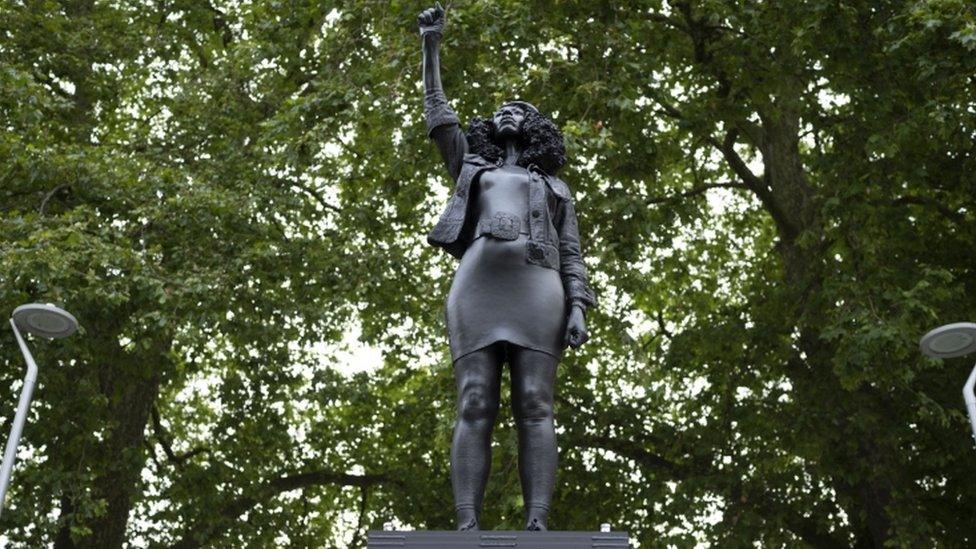
- Published9 June 2020
